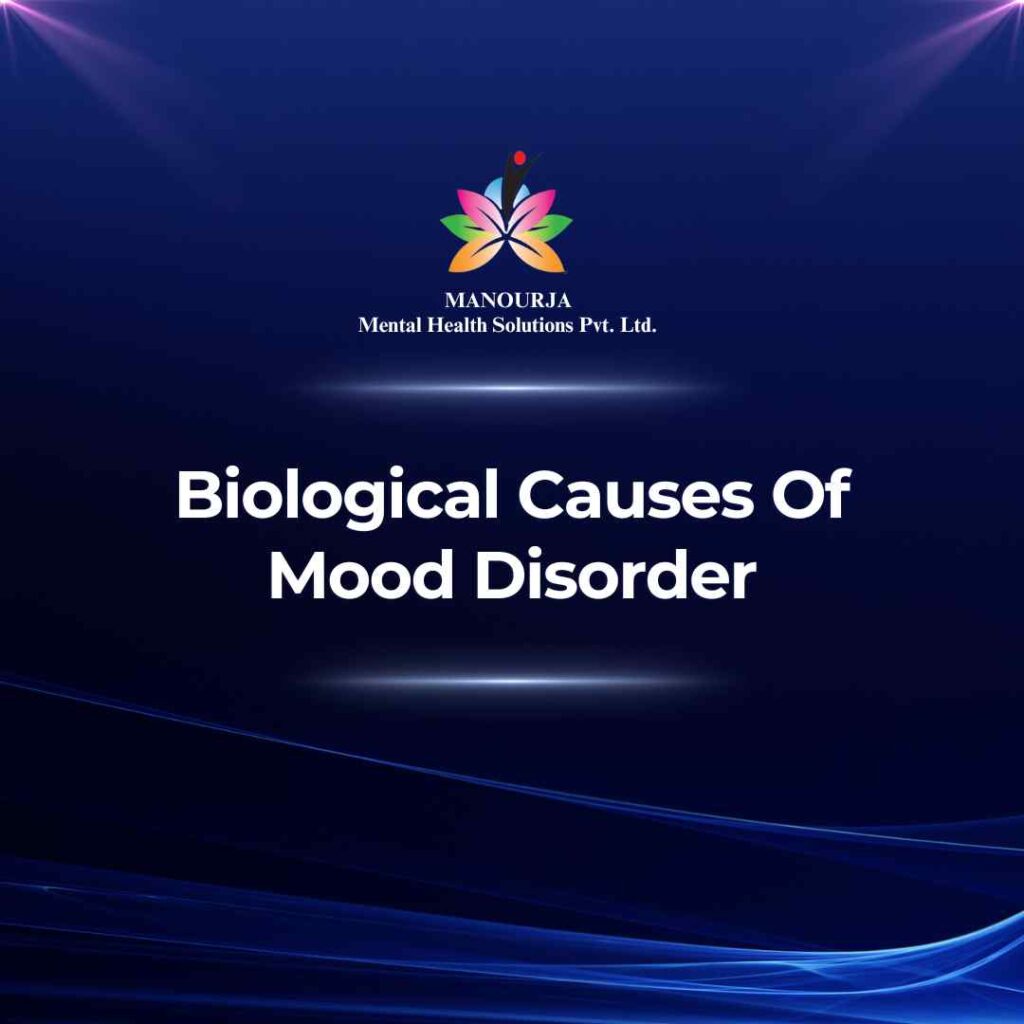Biological Causes of Mood Disorder

Mood disorders, such as major depressive disorder and bipolar disorder, are influenced by a combination of environmental, psychological, and biological factors. The biological causes, in particular, involve several physiological components that affect brain function and structure.
Here is a detailed exploration of the key biological factors involved in mood disorders:
Neurotransmitter Imbalances
Neurotransmitters are chemicals in the brain that facilitate communication between nerve cells. Key neurotransmitters implicated in mood disorders include serotonin, dopamine, and norepinephrine. Imbalances in these chemicals are thought to play a critical role in mood regulation, affecting feelings of happiness, sadness, and well-being.
Genetic Factors
Mood disorders tend to run in families, suggesting a genetic component. While no single gene is responsible, several genes are believed to increase vulnerability in combination with environmental factors. Genetic predisposition affects various aspects of neurotransmitter function and brain development that may contribute to mood disorders.
Brain Structure and Function
Imaging studies have revealed that individuals with mood disorders often have differences in certain areas of the brain. For example, the hippocampus, involved in mood and memory, might be smaller in those with depression. Abnormal activity in the prefrontal cortex, which is responsible for regulating emotions and decision-making, is also observed.
Hormonal Imbalances:
Hormones that regulate stress, such as cortisol, and reproductive hormones, like estrogen and testosterone, can influence brain chemistry and mood significantly. Disruptions in hormonal balance, often triggered by stress or life transitions (such as puberty, pregnancy, or menopause), can contribute to the development of mood disorders.
Inflammatory Responses
Increasing evidence suggests that inflammation, a response of the immune system, can play a role in mood disorders. Higher levels of inflammatory markers have been detected in some people with depression, indicating that inflammation might affect brain function and lead to mood symptoms.
Circadian Rhythm Disruption
The body’s internal clock regulates many biological processes, including sleep and hormone production. Disruption in these rhythms, such as through shift work or poor sleep habits, can lead to disturbances in mood.
Epigenetic Changes
Epigenetics involves changes in gene expression that do not alter the DNA sequence but are influenced by environmental factors. Stressful experiences, for instance, can lead to epigenetic changes that impact how genes related to mood regulation are expressed.
.
These biological factors contribute to the complexity of mood disorders and help explain why treatment can vary significantly between individuals. Understanding these causes supports the development of personalized medicine approaches, such as specific medications and therapeutic techniques that target these biological systems.
At MANOURJA, we believe in the transformative power of counseling. Our experienced therapists offer a safe and supportive space where you can explore your thoughts, emotions, and challenges. Through personalized counselling sessions, we’ll work together to develop coping strategies, build resilience, and achieve lasting positive change. Discover the path to a healthier, happier you with MANOURJA counselling services.
MANOURJA Rehabilitation Services
At MANOURJA, we’re dedicated to helping you in rebuild your life, after difficult times. Our rehabilitation services focus on understanding what you need to move forward, whether you’re recovering from addiction, trauma, or any psychological – social challenges. We create personalized plans, that are all about helping you, regain your strength and find hope again. With a caring team by your side, you’ll have the support to make real progress and take steps toward a brighter, healthier future.
